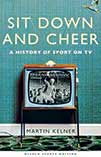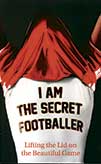 by Rafa Benítez
by Rafa Benítez
Headline, £20
Reviewed by Rob Hughes
From WSC 312 February 2013
While it’s still too early to judge Brendan Rodgers, the consensus on Liverpool’s post-war managers is pretty much in. Shankly and Paisley? Daft question. Dalglish? Still a legend, despite last season. Evans and Houllier? Both missed their chance and overstayed their time. Hodgson? Oh come on.
But no Liverpool chief has polarised opinion like Rafa Benítez. To some he remains the tactical giant who outmanoeuvred far superior teams on the way to Champions League nirvana in 2005 and whose plans for reasserting Liverpool’s dominance at home were only undone by the financial misdeeds of a pair of mad American owners. To others he’s the bloke who got lucky, made more disastrous transfer dealings than good ones, took us down into the Europa League and promptly buggered off to Milan with a £6 million pay-off.
Champions League Dreams is unlikely to make either camp scamper over to the other side. Aided by Telegraph writer Rory Smith, Benítez’s prose is often as clinical and perfunctory as his press conferences while he journeys through his six European campaigns at the club. It’s a smart narrative move. Ignoring his underwhelming achievements in the Premier League – only coming close in 2008-09 and that after an embarrassing post-Christmas collapse and the Robbie Keane fiasco – this book amounts to a Greatest Hits of Rafa’s time at Liverpool.
One thing it does shore up is his obsession for detail. Benítez happily reveals the extent of his DVD resource library, one that lined the walls at Melwood, filled the basement at home and even stuffed up the attic of his parents’ house in Madrid. Those DVDs and accompanying notes were filled with games, players and coaching sessions, all neatly categorised, numbered and instantly accessible through a database, what he describes as “not just a record of all the games I had managed and training sessions I had overseen in my career, but an extensive library of football around the world”. It was a system he applied to educate players about the opposition and how to improve.
Some of his written detail is enlightening, not least when explaining how Liverpool managed to outsmart Barcelona in 2007, pinching the win at the Nou Camp then, with a first 45 minutes of “possibly the best half of football, tactically, I saw in my time at Liverpool”, closing out the tie. Occasionally some of the incidental detail is precious. Steven Gerrard, for instance, catching a lift home from a passing milk float when unable to flag a taxi after celebrating the semi-final win against Chelsea that season.
The baffling sale of Xabi Alonso is dealt with, though hardly satisfactorily, with Benítez claiming he was backed into a corner by financial necessity and UEFA’s newly imposed overseas player ratios. While both hold a degree of truth, at no point does he concede that it was a colossal mistake or show any awareness of the huge demotivating effect Alonso’s departure had on the likes of Gerrard, Javier Mascherano and Fernando Torres.
If it’s tactical insight you’re after, this book might suit you fine. But those hoping to unlock the secrets and impulses of this complex individual will be little the wiser.
 A history of sport on TV
A history of sport on TV Day 17 of the WSC Christmas advent calendar and we’ve got the joys of Christmas gifts for you. Today is the final day to order a UK WSC Christmas gift subscription and guarantee their personalised card arrives in time for the big day.
Day 17 of the WSC Christmas advent calendar and we’ve got the joys of Christmas gifts for you. Today is the final day to order a UK WSC Christmas gift subscription and guarantee their personalised card arrives in time for the big day.  Lifting the lid on the beautiful game
Lifting the lid on the beautiful game